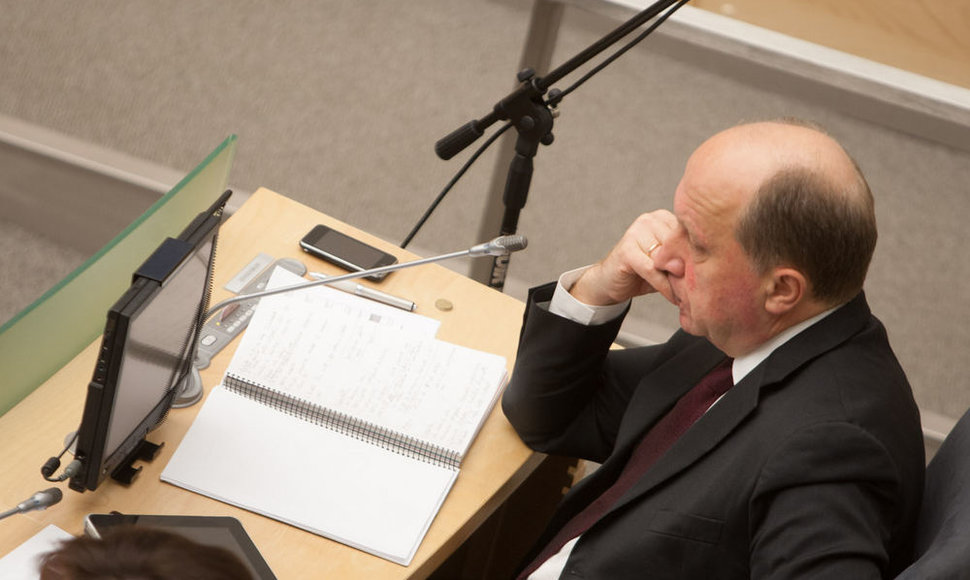"It's hard to assess the PM nominee's words when you hear nothing he hasn't said during the election campaign, when there's no major program commitments. I could be happy in this sense – the government probably plans no radical changes, which means it may not be able to damage what we have started and done," Kubilius told journalists.
He also noted he was not concerned by the candidate for prime minister but was much more worried about the operation of the new government involving the Labour Party on trial.
"Today, the candidate for prime minister and his words are not the main concern, it is what the coalition will look like and whether the prime minister and the Social Democrats will serve as a disguise for dropping charges against the Labour Party," the outgoing PM said.
Earlier on Tuesday, President Dalia Grybauskaite presented the Social Democratic Party's leader Algirdas Butkevičius as the candidate for prime minister. The president said she expected the future prime minister to propose candidates for ministers who would raise no moral or professional doubts.
"A political disguise for a party on trial and its members would make hostages of the Social Democrats and the rest of the state. Therefore, I hope that Butkevičius will have enough integrity, personal and business-like qualities to propose only the individuals who raise no moral or professional doubts," the president noted.
Grybauskaitė emphasized that the choice made by the Social Democratic Party between transparent and responsible policies and identification with the party on trial would be crucial for everyone, adding that the first test would be the ballot on stripping the MPs who are on trial of their legal immunity.
The Labour Party, its leader Viktor Uspaskich, and his deputy Vytautas Gapšys are standing fraud charges.
After the October elections, the ruling majority was formed by the Lithuanian Social Democratic Party, the Order and Justice party, the Labour Party, and the Electoral Action of Poles in Lithuania.
According to the Lithuanian Constitution, the prime minister is appointed and dismissed by the president with support from the parliament.












